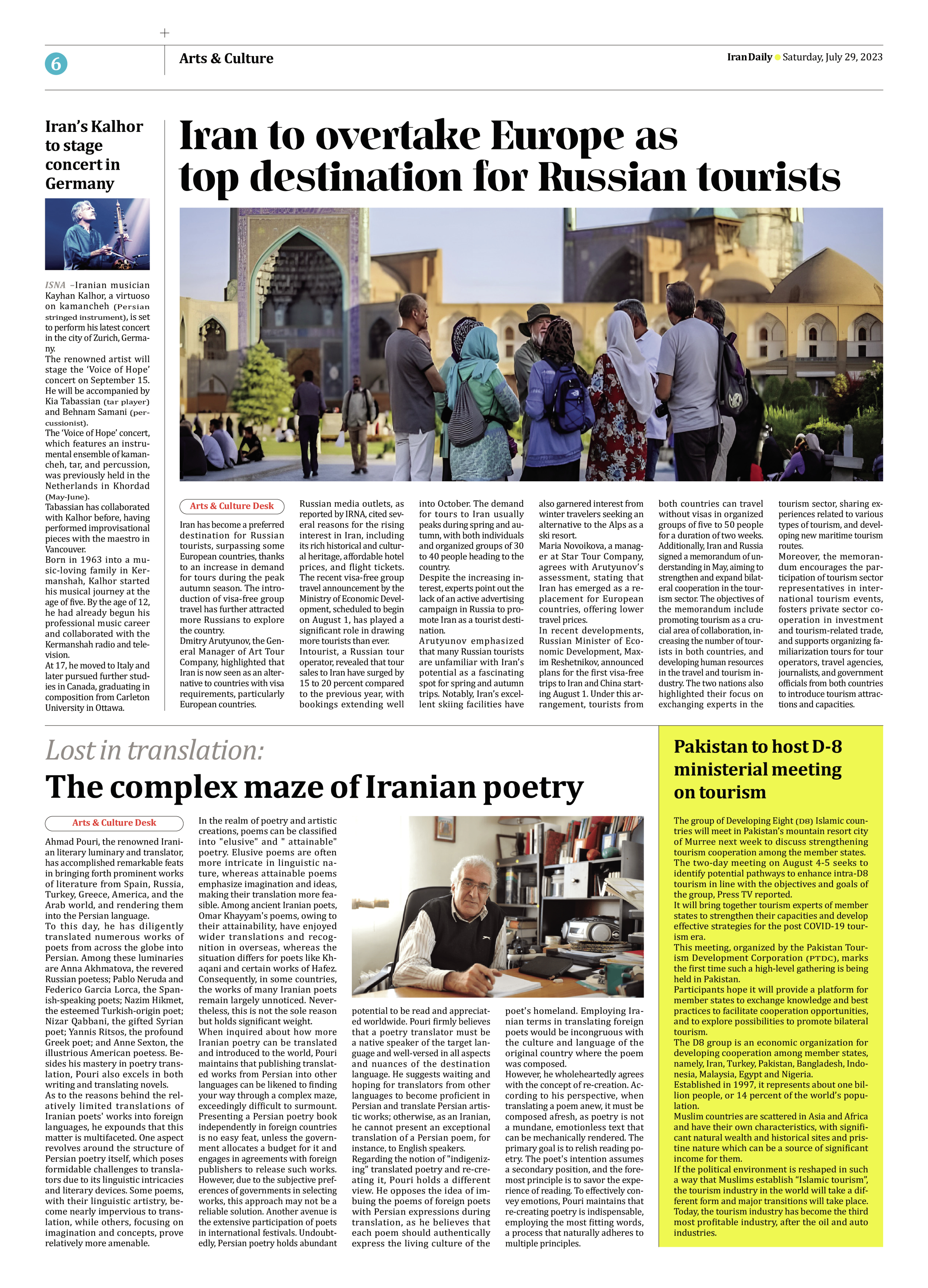
Lost in translation:
The complex maze of Iranian poetry
Ahmad Pouri, the renowned Iranian literary luminary and translator, has accomplished remarkable feats in bringing forth prominent works of literature from Spain, Russia, Turkey, Greece, America, and the Arab world, and rendering them into the Persian language.
To this day, he has diligently translated numerous works of poets from across the globe into Persian. Among these luminaries are Anna Akhmatova, the revered Russian poetess; Pablo Neruda and Federico Garcia Lorca, the Spanish-speaking poets; Nazim Hikmet, the esteemed Turkish-origin poet; Nizar Qabbani, the gifted Syrian poet; Yannis Ritsos, the profound Greek poet; and Anne Sexton, the illustrious American poetess. Besides his mastery in poetry translation, Pouri also excels in both writing and translating novels.
As to the reasons behind the relatively limited translations of Iranian poets' works into foreign languages, he expounds that this matter is multifaceted. One aspect revolves around the structure of Persian poetry itself, which poses formidable challenges to translators due to its linguistic intricacies and literary devices. Some poems, with their linguistic artistry, become nearly impervious to translation, while others, focusing on imagination and concepts, prove relatively more amenable.
In the realm of poetry and artistic creations, poems can be classified into "elusive" and " attainable" poetry. Elusive poems are often more intricate in linguistic nature, whereas attainable poems emphasize imagination and ideas, making their translation more feasible. Among ancient Iranian poets, Omar Khayyam's poems, owing to their attainability, have enjoyed wider translations and recognition in overseas, whereas the situation differs for poets like Khaqani and certain works of Hafez. Consequently, in some countries, the works of many Iranian poets remain largely unnoticed. Nevertheless, this is not the sole reason but holds significant weight.
When inquired about how more Iranian poetry can be translated and introduced to the world, Pouri maintains that publishing translated works from Persian into other languages can be likened to finding your way through a complex maze, exceedingly difficult to surmount. Presenting a Persian poetry book independently in foreign countries is no easy feat, unless the government allocates a budget for it and engages in agreements with foreign publishers to release such works. However, due to the subjective preferences of governments in selecting works, this approach may not be a reliable solution. Another avenue is the extensive participation of poets in international festivals. Undoubtedly, Persian poetry holds abundant potential to be read and appreciated worldwide. Pouri firmly believes that a poetry translator must be a native speaker of the target language and well-versed in all aspects and nuances of the destination language. He suggests waiting and hoping for translators from other languages to become proficient in Persian and translate Persian artistic works; otherwise, as an Iranian, he cannot present an exceptional translation of a Persian poem, for instance, to English speakers.
Regarding the notion of "indigenizing" translated poetry and re-creating it, Pouri holds a different view. He opposes the idea of imbuing the poems of foreign poets with Persian expressions during translation, as he believes that each poem should authentically express the living culture of the poet's homeland. Employing Iranian terms in translating foreign poets would be incongruous with the culture and language of the original country where the poem was composed.
However, he wholeheartedly agrees with the concept of re-creation. According to his perspective, when translating a poem anew, it must be composed afresh, as poetry is not a mundane, emotionless text that can be mechanically rendered. The primary goal is to relish reading poetry. The poet's intention assumes a secondary position, and the foremost principle is to savor the experience of reading. To effectively convey emotions, Pouri maintains that re-creating poetry is indispensable, employing the most fitting words, a process that naturally adheres to multiple principles.







